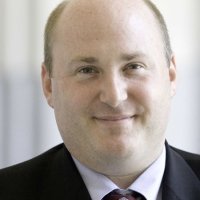Environment, Conflict, and Cooperation: Scoping Gaps and Opportunities for Research and Policy Agendas
A diverse group of international practitioners, policymakers, and researchers gather at the Wilson Center to analyze the gaps and opportunities for research and policy agendas in the growing field of environmental conflict and cooperation.
Overview
A diverse group of international practitioners, policymakers and researchers gathered at the Wilson Center to analyze the gaps and opportunities for research and policy agendas in the growing field of environmental conflict and cooperation. The participants spent two days discussing three background papers on analysis, policy and assessment, followed by sessions on developing partnerships and opportunities for the United Nations Environment Programme (UNEP), whose Division of Early Warning and Assessment (DEWA) sponsored the conference.
Steve Lonergan, the director of DEWA, opened by outlining what he hoped to accomplish over the next three days: identify the problems and opportunities in current linkages between conflict, cooperation and the environment, and move towards an appropriate methodology that would increase inter-agency cooperation and the use of scientific techniques in this field.
Richard Matthew of the University of California, Irvine presented the first paper, which discussed analysis of the links between the environment, conflict, and cooperation and focused on issues of context and methodology. The second paper, co-authored by Alexander Carius of Adelphi Research and Geoffrey D. Dabelko, the director of the Wilson Center's Environmental Change and Security Project, analyzed the gaps and opportunities in policy and institutional response, such as the problems caused by compartmentalized academic disciplines and government departments. The final presenters, Marc Levy and Patrick Philippe Maier of Columbia University, highlighted the lack of data and integrated assessment in early warning systems.
During breakout sessions, participants brainstormed ways for UNEP to address these gaps and opportunities. Most participants wanted UNEP to act as an information clearinghouse and a resource for different organizations to build partnerships. Steve Lonergan agreed that UNEP could seek to coordinate international agencies, synthesize methodologies and data, and communicate findings to policymakers. UNEP plans to continue discussing these issues at upcoming meetings, publish a report containing revised versions of the three papers, and circulate it at major conferences in the spring.
Participant List:
- Saleem H. Ali, School of Natural Resources, University of Vermont
- Adnan Z. Amin, UNEP
- Tariq Banuri, Stockholm Environment Institute
- Scott Bode, USAID
- Alexander Carius, Adelphi Research
- Ken Conca, Department of Government and Politics, University of Maryland
- Thomaz G. da Costa, National Defense University
- Geoffrey D. Dabelko, Environmental Change and Security Project
- Silvia Giada, UNEP
- Nils Petter Gleditsch, International Peace Research Institute, Oslo
- Virginia Haufler, University of Maryland
- Henk Hilderink, RIVM
- Inkar Kadyrzhanova, UNDP
- Patricia Kameri-Mbote, University of Nairobi
- Heinz Krummenacher, Swisspeace
- Marc Levy, CIESIN
- Steve Lonergan, UNEP
- Alexander López, Universidad Nacional, Costa Rica
- Eva Ludi, Swiss Peace Foundation
- Richard A. Matthew, University of California Irvine
- John M. Matuszak, Department of State
- Margaret McCauley, Department of State
- Patrick Philippe Meier, Columbia University, CIESIN
- Christian Nellemann, GRID-Arendal
- Gianluca Rampolla del Tindaro, OSCE
- Douglas Richardson, American Association of Geographers
- Alfredo Sfeir-Younis, World Bank
- Ashbindu Singh, UNEP
- Jaidev (Jay) Singh, USAID
- Tom Spencer, European Center for Public Affairs and University of Surrey
- Takao Toda, JICA
- Ron Witt, UNEP
Speakers
Richard Matthew
Steve Lonergan

Alexander Carius

Geoffrey D. Dabelko, PhD
Professor and Associate Dean, George V. Voinovich School of Leadership and Public Affairs, Ohio University; Associate Senior Fellow, Environment of Peace Initiative, Stockholm International Peace Research Institute
Marc Levy
Patrick Philippe Meier
Hosted By

Environmental Change and Security Program
The Environmental Change and Security Program (ECSP) explores the connections between environmental change, health, and population dynamics and their links to conflict, human insecurity, and foreign policy. Read more
Thank you for your interest in this event. Please send any feedback or questions to our Events staff.










